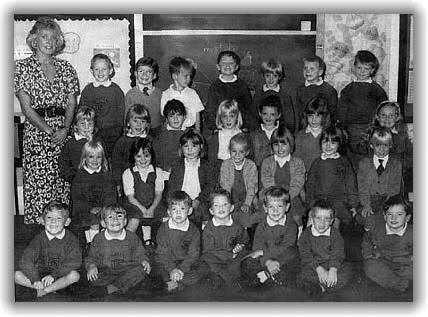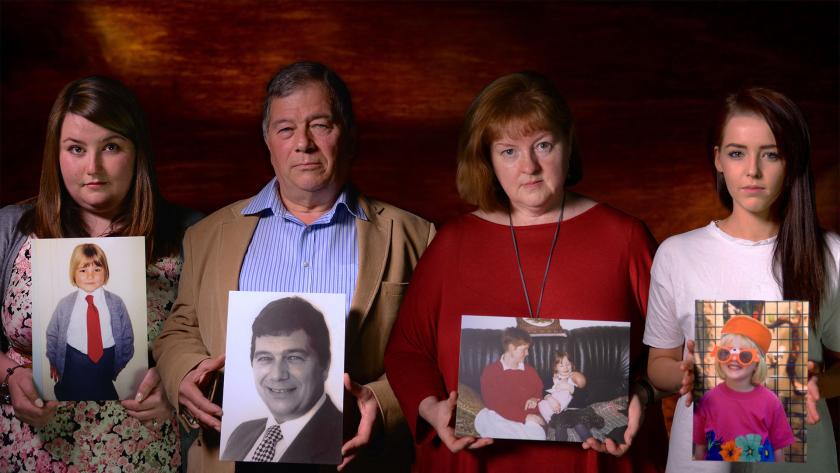For anyone living in the UK at the time, the Dunblane massacre on 13 March 1996 was an event so seared into their minds that they can remember exactly where they were when the shocking news came through.
I was working on The Daily Telegraph's arts pages when, by a horrible coincidence, a film review was accompanied by a picture with a handgun in it; the page was quickly redesigned – as indeed was most of the paper as the awful story unfolded and the enormity of it became clear. In the small town of Dunblane, near Stirling, Thomas Hamilton had walked into Dunblane Primary School, and shot dead 16 pupils of Primary Year 1 and their teacher as they took a gym class. It remains the deadliest firearms atrocity in this country, and led to further restrictions on what were already strict gun laws in the UK.
To mark the 20th anniversary, Stephen Bennett produced this utterly gripping documentary, in which parents, siblings, survivors, the headmaster and police liaison officer spoke – almost all for the first time publicly – about that awful day. He used a simple but effective format – a fixed camera focused on the individuals as they talked – interspersed with background notes flashed on the screen and news footage from 1996, and only minimal reconstruction, which provided the only mildly discordant note in the film. Correctly, Hamilton hardly figured.
 In an hour filled with quiet but choking emotion, it was one of those bits of footage from the day after the shootings that hit me most, in which Superintendent Louis Munn read out a list of the dead children: after each of the 16 pupils' names he repeated the words “aged five” and ended the list with “Gwen Mayor, aged 45”. The last named was the teacher (pictured above with Primary Year 1) who tried to save her charges, a fact that her daughter, Debbie, says makes her very proud. Not for the first or last time in this hour, I was struck by the astonishing lack of bitterness as she spoke about her loss.
In an hour filled with quiet but choking emotion, it was one of those bits of footage from the day after the shootings that hit me most, in which Superintendent Louis Munn read out a list of the dead children: after each of the 16 pupils' names he repeated the words “aged five” and ended the list with “Gwen Mayor, aged 45”. The last named was the teacher (pictured above with Primary Year 1) who tried to save her charges, a fact that her daughter, Debbie, says makes her very proud. Not for the first or last time in this hour, I was struck by the astonishing lack of bitterness as she spoke about her loss.
Their testimonies were riven with what is clearly still raw emotion, with sentences that often trailed off. Alison and Catherine, from separate families, spoke about growing up without their elders sisters; Steve and Beverley about their guilt because their son, Matthew, survived; Isabel and Mick were, separately, two single parents who lost a daughter after having already recently lost their spouses; Ron Taylor, the headteacher, described the “unimaginably horrible” scene as he ran into the gym that morning.
Isabel, who lost her daughter Mhairi, was particularly eloquent about her loss. Mhairi was the only child of the 16 not to die at the scene; in the confusion and lack of organisation (the media had been informed about the number of deaths before the parents were finally told several hours after the shootings occurred), Isabel was not in the ambulance with her daughter when she died, and she understandably feels betrayed and angry.
It was also striking how important the language used to describe events is to the people of Dunblane. Mhairi didn't die, Isabel said – "Thomas Hamilton murdered her" – while Mr Taylor added: “Some people called it an incident, which was hardly appropriate.” His famous words, “Evil visited us yesterday", spoken when he was still in shock the day after, still ring down the years.
Amy, who survived her gunshot wounds, provided the programme's few lighthearted moments as she described being less than enthralled as a five-year-old by the Queen's visit to the hospital where she spent six weeks recovering, and the rank smell emanating from the school bag that was returned to her by police when their investigation had finished. “It was a banana.”
The film also ended on a positive note, as Alison spoke about the need for people to honour the dead, but how important it was for Dunblane to show that it can “power on”. A remarkable statement from a remarkable town in a remarkable film.















Add comment